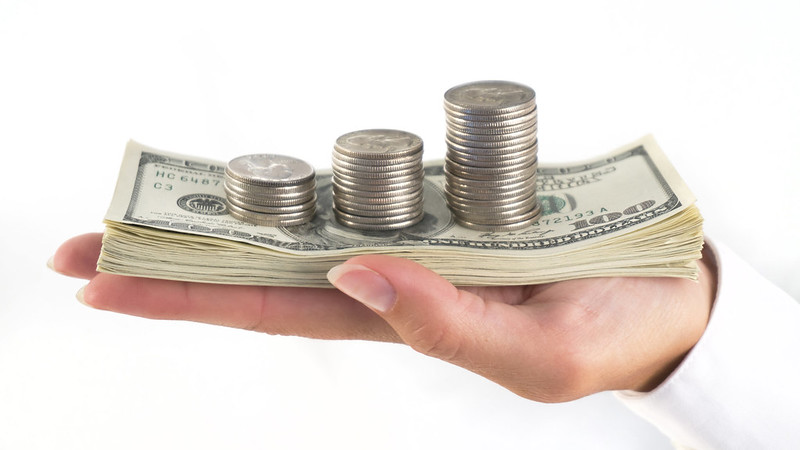With coronavirus disrupting our daily lives, many people are worried about the effects on their budgets. Being told to sit on your hands and wait while uncertainty swirls around you can just add to your stress levels. Taking some practical steps to manage your money can give you a better handle on your finances right now.
Unfortunately, there is no silver bullet for surviving a financial crisis. Preparing for a financial crisis should happen when the going is good. It is very akin to what the armed forces do, i.e. always prepare and be ready for war during peace times, like ensuring soldiers do mock war drills, exercises and are combat-ready!
When in the mid of a crisis like we are today, there are some strategies to take to ensure you stay afloat and do not sink with the financial storm.
Here are six ways to secure your finance during a global financial crisis as we are witnessing today because of the coronavirus:
1. Do Not Overspend
Prioritizing your expenses is very important to avoid unwarranted expenditures. An emergency budget is different than emergency savings. While it’s too late to save for this emergency that has befallen the world, it is not too late to create an emergency budget based on your reduced level of income.
It’s in your best interest to be mindful of the difference between “needs” and “wants,” so you can make better spending choices. Needs are things you have to have to survive. Conversely, wants are things you would like to have but don’t require for survival. There’s a very big difference between wants and needs. For instance, housing, medical costs, and reasonable and customary amounts for food and transportation can be critical to everyday life. But forms of entertainment, including internet and streaming services, expensive data plans, restaurants, clothing, beauty treatments, and other personal indulgences, may be optional. The first thing you want to do is make a list. Address what’s most important, then decide what you need to eliminate, reduce or find creative solutions to other optional expenses, says Lauren Weatherford, West Virginia University.
With the economy changing rapidly, keeping a budget and tracking expenses can help you maintain better control and give you peace of mind. If you haven’t examined your budget closely in a while, now’s a good time to look for any waste and opportunities to save money. Look for monthly bills you could reduce—like a better internet package, cell phone plan, or cable subscription. Also consider things like spending less on eating outside, entertainment and hobbies.
CLICK HERE TO SIGN UP AND JOIN OUR NETWORK OF READERS
2. Avoid the Temptation to Borrow
Borrowing during a financial crisis can add to your financial stress, especially where it is not certain when the crisis will end.
While it’s true that some interest rates may reach near historic lows, avoid the temptation of borrowing during a time of huge transition. Things might not just work the way you envisage immediately after the global lockdown and you may have to miss the deadline.
Instead of committing to payments, set the money that you would have been using to make those payments aside in a saving account until you know how you’ve weathered this storm. There is every chance that interest rates will stay low until well after the coronavirus has passed to help the economy recover more quickly, says Scott Hannah of Credit Counselling Society.
You should only borrow when it is your last resort.
ALSO READ: PANDEMIC ECONOMICS: What You Should Know About Government Response to a Global Crisis.
3. Do not fall for Scammers
Whenever there is a large-scale financial crisis, the scammers flock to “help.” Falling prey to scammers can take a huge sum off your already draining funds and leave you with fewer notes to fend for yourself during a financial crisis.
Just like with any personal finance opportunity, if it sounds too good to be true, then it probably is. When in doubt, ask a trusted friend to review the information with you.
Also, avoid clicking unverified links with a promise of monetary rewards or compensation. Most are preying on you waiting to take hold of your sensitive information to their advantage.
4. Grow Other Income Sources
Everyone has something they can do to earn extra money, whether it’s selling possessions you no longer use (either online or in a garage sale), babysitting, offering online tutorials, freelancing, or getting a second job. The money you earn from these activities may seem insignificant compared to what you earn at your primary job, but even small amounts can add up to something meaningful over time.
5. Save where possible
Events can and will happen. Keep saving in anticipation of future needs. We are indeed in an unprecedented time in history, but you can still save from the little in your coffers. Dedicate a certain amount daily or weekly to your savings. This will add up to your emergency funds later if the crisis persists. If you are not earning any income during the crisis, you may well generate your new savings from excluded expenditures. Whichever is the case, make sure you are putting something in your savings purse - do that often and regularly.
6. Don’t panic
“Don’t panic. Be financially thoughtful. In this time of social distancing, it can be very tempting to follow the crowd and make decisions such as panic shopping. If you find that you need something or you would like to have something at home just in case, that’s okay. Things like medications, shelf-stable foods – go ahead purchase these for a week or two in advance, but know that chances are that they will be in the stores when you return”, says Lauren Weatherford, West Virginia University.
Panic buying can make you spend extra notes than is necessary and most times you may end up stocking up the wrong things.
Now is the time to curtail unnecessary expenditures because we do not know when this shall end. Stay Financially safe.


